Filter by

Pragmatism and methodology: doing research that matters with mixed methods
A pragmatist … turns away from abstraction and insufficiency, from verbal solutions, from bad a priori reasons, from fixed principles, closed systems, and pretended absolutes and origins. He turns towards concreteness and adequacy, towards facts, towards action, and towards power. That means the empiricist temper regnant, and the rationalist temper sincerely given up. It means the open ai…
- Edition
- -
- ISBN/ISSN
- 9781316516140
- Collation
- ix, 236 p ; 24 cm
- Series Title
- -
- Call Number
- 300.72 GIL p
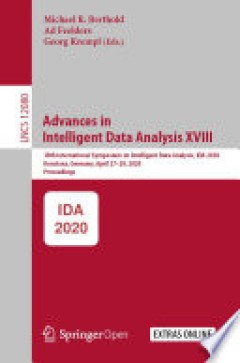
Advances in Intelligent Data Analysis XVIII: 18th International Symposium on …
Missing data is a common occurrence in the time series domain, for instance due to faulty sensors, server downtime or patients not attending their scheduled appointments. One of the best methods to impute these missing values is Multiple Imputations by Chained Equations (MICE) which has the drawback that it can only model linear relationships among the variables in a multivariate time series. T…
- Edition
- 1
- ISBN/ISSN
- 9783030445843
- Collation
- XIV, 588p
- Series Title
- Lecture Notes in Computer Science
- Call Number
- 005.74 AID r
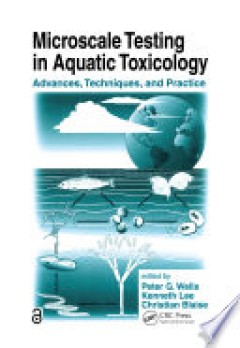
Microscale testing in aquatic toxicology : advances, techniques, and practice
Bioassays are among the ecotoxicologist's most effective weapons in the evaluation of water quality and the assessment of ecological impacts of effluents, chemicals, discharges, and emissions on the aquatic environment. Information on these assessment aids is needed throughout the international scientific and environmental management community. This comprehensive reference provides an excellent…
- Edition
- -
- ISBN/ISSN
- 9781351431453
- Collation
- ix, 720 p
- Series Title
- -
- Call Number
- 628.161 WEL
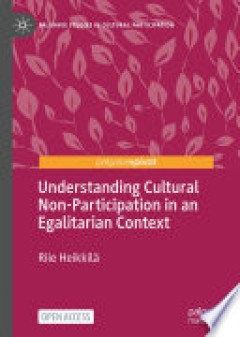
Understanding Cultural Non-Participation in an Egalitarian Context
This book uses a rich data set, from individuals whose background profiles statistically predict strong cultural non-participation, to explore the most salient lifestyles and symbolic boundaries drawn in these potentially disengaged groups.The book departs from a theoretical framework in which cultural practices and cultural participation in their most visible and tangible form are seen as mani…
- Edition
- -
- ISBN/ISSN
- 9783031188657
- Collation
- viii, 163 p
- Series Title
- Palgrave Studies in Cultural Participation
- Call Number
- 363.494 HEI
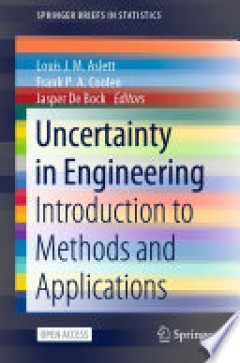
Uncertainty in engineering : introduction to methods and applications
This open access book provides an introduction to uncertainty quantification in engineering. Starting with preliminaries on Bayesian statistics and Monte Carlo methods, followed by material on imprecise probabilities, it then focuses on reliability theory and simulation methods for complex systems. The final two chapters discuss various aspects of aerospace engineering, considering stochastic…
- Edition
- Ed. 1
- ISBN/ISSN
- 9783030836405
- Collation
- VII, 147
- Series Title
- -
- Call Number
- 519.5 Unc
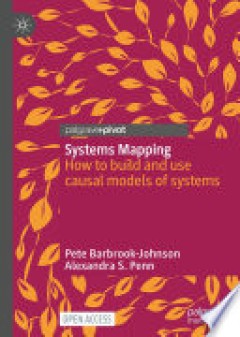
Systems mapping : how to build and use causal models of systems
This open access book explores a range of new and older systems mapping methods focused on representing causal relationships in systems. In a practical manner, it describes the methods and considers the differences between them; describes how to use them yourself; describes how to choose between and combine them; considers the role of data, evidence, and stakeholder opinion; and describes how t…
- Edition
- -
- ISBN/ISSN
- 9783031019197
- Collation
- XVII, 186 p
- Series Title
- -
- Call Number
- 003 PET s
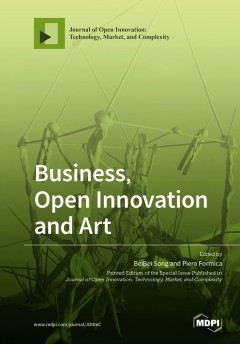
Business, open innovation and art
After its predecessors turned humans and organizations into machines, the Fourth Industrial Revolution is turning machines into humans. As digital machines acquire more and more cognitive intelligence, the development of humans becomes ever more vital, for society and business alike. Time has come to recognize the value of art and humanities. As the world experiences massive turbulence and comp…
- Edition
- -
- ISBN/ISSN
- 9783039366163
- Collation
- xvi, 135p.: ill.
- Series Title
- -
- Call Number
- 705 BUS b
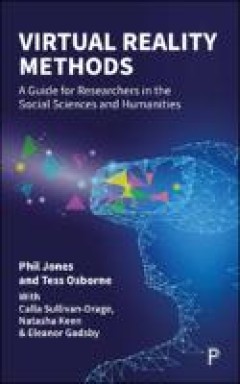
Virtual reality methods: a guide for researchers in the social sciences and h…
Since the mid-2010s, virtual reality (VR) technology has advanced rapidly. This book explores the many opportunities that VR can offer for humanities and social sciences researchers. The book provides a user-friendly, non-technical methods guide to using ready-made VR content and 360° video as well as creating custom materials. It examines the advantages and disadvantages of different approach…
- Edition
- -
- ISBN/ISSN
- 9781447360773
- Collation
- vii, 159p : ill.
- Series Title
- -
- Call Number
- 001.30721 PHI v
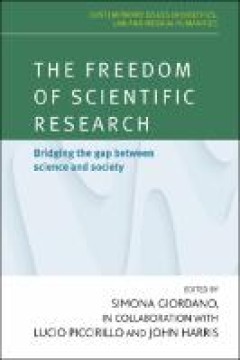
The freedom of scientific research
Never have the scope and limits of scientific freedom been more important or more under attack. New science, from artificial intelligence to genomic manipulation, creates unique opportunities to make the world a better place. But it also presents unprecedented dangers, which many believe threaten the survival of humanity and the planet. This collection, by an international and multidisciplinary…
- Edition
- -
- ISBN/ISSN
- 9781526146472
- Collation
- xxvi, 261p : ill
- Series Title
- -
- Call Number
- 001.42 FRE f
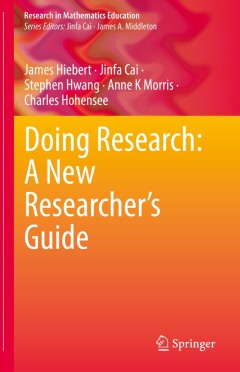
Doing research: a new researcher’s guide
This book is about scientific inquiry. Designed for early and mid-career researchers, it is a practical manual for conducting and communicating high-quality research in (mathematics) education. Based on the authors’ extensive experience as researchers, as mentors, and as members of the editorial team for the Journal for Research in Mathematics Education (JRME), this book directly speaks to re…
- Edition
- -
- ISBN/ISSN
- 978-3-031-19078-0
- Collation
- xvii, 136p.
- Series Title
- Research in Mathematics Education
- Call Number
- 510.72 DOI
 Computer Science, Information & General Works
Computer Science, Information & General Works  Philosophy & Psychology
Philosophy & Psychology  Religion
Religion  Social Sciences
Social Sciences  Language
Language  Pure Science
Pure Science  Applied Sciences
Applied Sciences  Art & Recreation
Art & Recreation  Literature
Literature  History & Geography
History & Geography